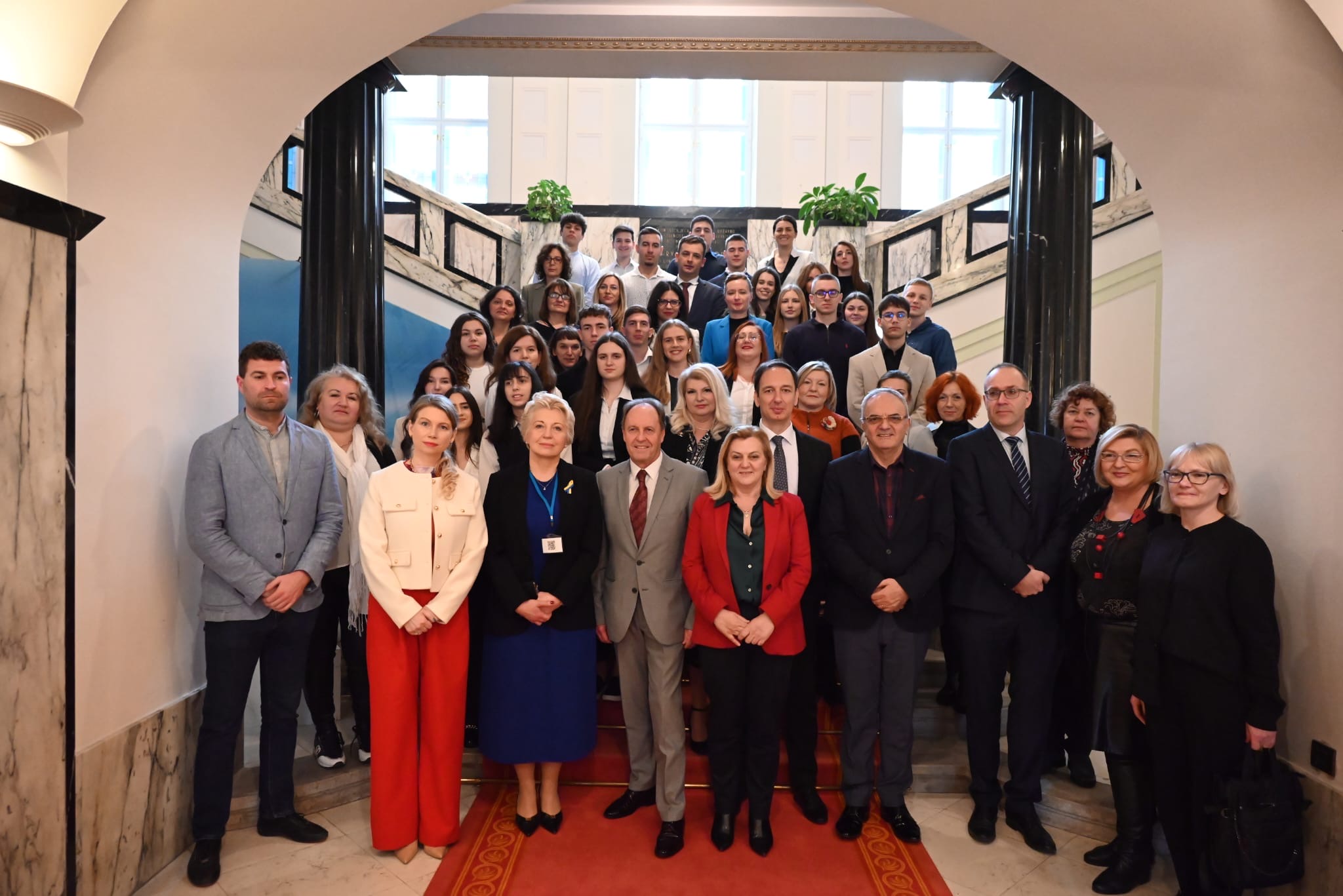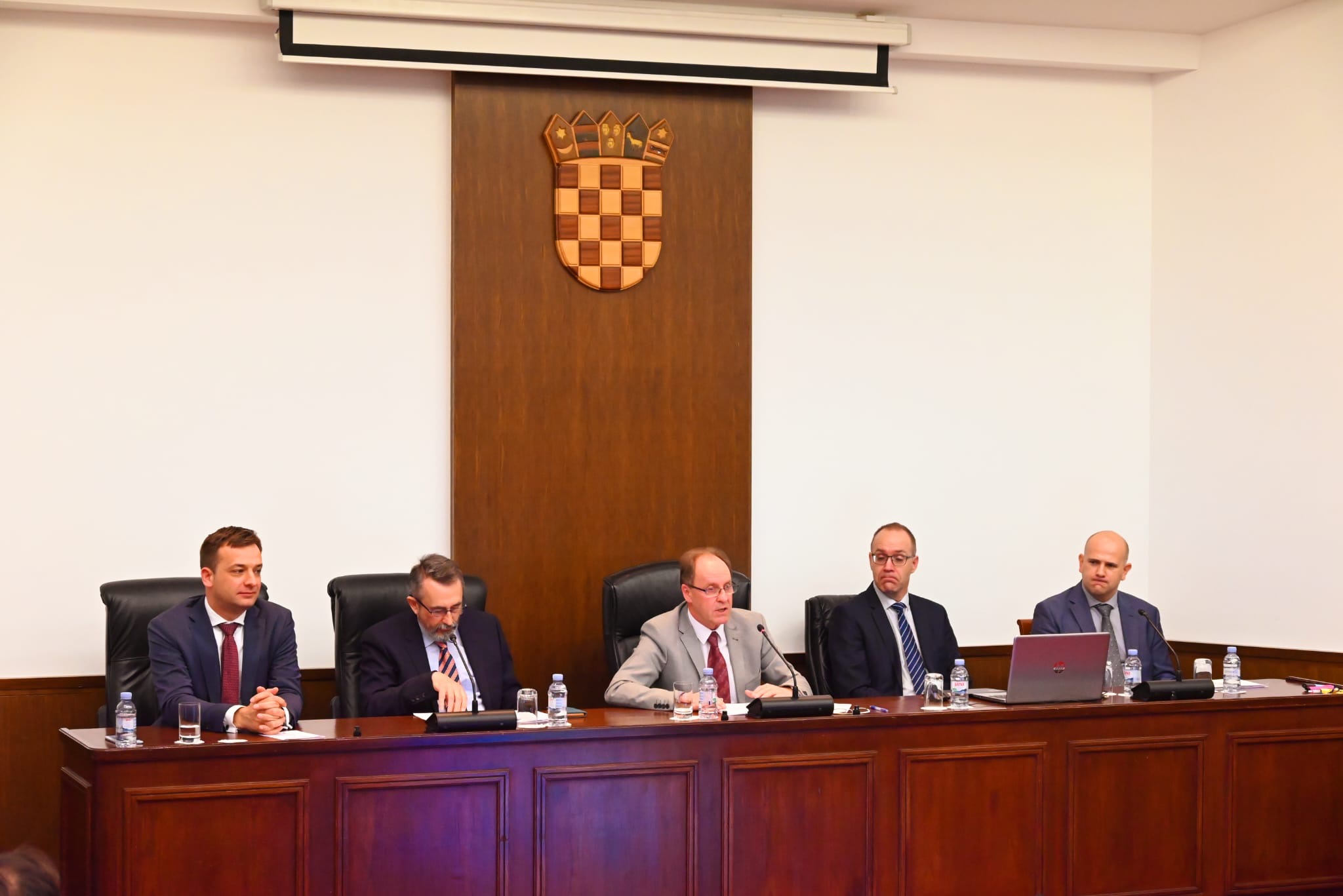In creating a stimulating environment for innovation in the protection of human rights, dialogue and cooperation of different professions is necessary – one of the key messages of the conference “Innovation and digital transition in the protection of human rights”
Zagreb, 29 February 2024 – Promoting innovation, encouraging dialogue between stakeholders and understanding the impact of innovation and digital transition on human rights are the goals of the international conference “Innovation and digital transition in the protection of human rights”, which was held in the Croatian Parliament, organized by Ermina Lekaj Prljaskaj, parliamentary representative of the Albanian, Bosniak, Montenegrin, Macedonian and Slovenian national minorities, and co-organized by the Faculty of Law, the University of Zagreb, the Union of Croatian Innovators, and the borough councils of Gornja Dubrava and Sesvete.
As pointed out in the introductory presentation by Assoc. Prof. Mario Krešić, vice dean of the Faculty of Law, social innovations and services are often perceived as less valuable than technological innovations, so understanding the value of social innovations as key to solving problems such as corruption, inequality and inefficiency, can enable changes that lead to a society that values and encourages innovation at all levels.
“The example of digitization of the judiciary illustrates the impact of technologies on the protection of rights, showing how the e-bulletin board, e-files, and e-cases are revolutionizing the judiciary and changing the way of working within the judicial system. Digitization of the judiciary has brought significant changes, but the question arises whether, after more than twenty years of digitization in the judiciary, the process was carried out in the most efficient way and whether it is possible that it is still incomplete. Judgments are still not fully available to the public and jurists. There is a lack of systematic presentation and availability of all judgments, which indicates that additional improvements are needed in the process of digitizing the judicial system,” he emphasized.
In the panel discussion, moderated by Prof. Miljenko Šimpraga, president of the Union of Croatian Innovators, shared his experiences with Prof. Ivan Koprić, dean of the Faculty of Law, Assoc. Prof. Marko Jurić, also from the Faculty of Law, Prof. Marko Novak, dean of the European Faculty of Law of the New University from Slovenia, and Darijo Jurišić, deputy ombudsman for persons with disabilities.
“Digitization, online space and the virtual world, and artificial intelligence bring new challenges and risks in the area of human rights protection, but at the same time offer innovative ways of promoting them. The area of human rights is expanding, so new rights are included and enabled, such as the right of access to information, transparency, protection of personal data, good governance, wider political participation, and others; and traditional ones are being redesigned, such as copyright, the right to local self-governance, security, sustainable development and peace. A multitude of social and legal innovations are aimed at addressing risks and achieving online safety. In creating a stimulating environment for innovations in the protection of human rights, it is indispensable to ensure dialogue and cooperation between various professions, from technical to social sciences and humanities, including law, administration, economics, psychology and others,” said Dean Koprić.
The panel discussion was followed by a presentation of examples of good practice, moderated by Andreja Marcetić from the Croatian Chamber of Social Pedagogues, representative of the social care section, in which Prof. Gordana Berc, head of the Social Work Study Centre, students Iva Pejić and Paola Hakač from the Law Clinic, and student Sanja Aralica from Administrative Compass.
The conference has the potential to support the National Development Strategy of the Republic of Croatia for 2030 through the promotion of innovation, dialogue between stakeholders, understanding the impact of the digital transition and the development of guidelines and action plans for the protection of human rights.



